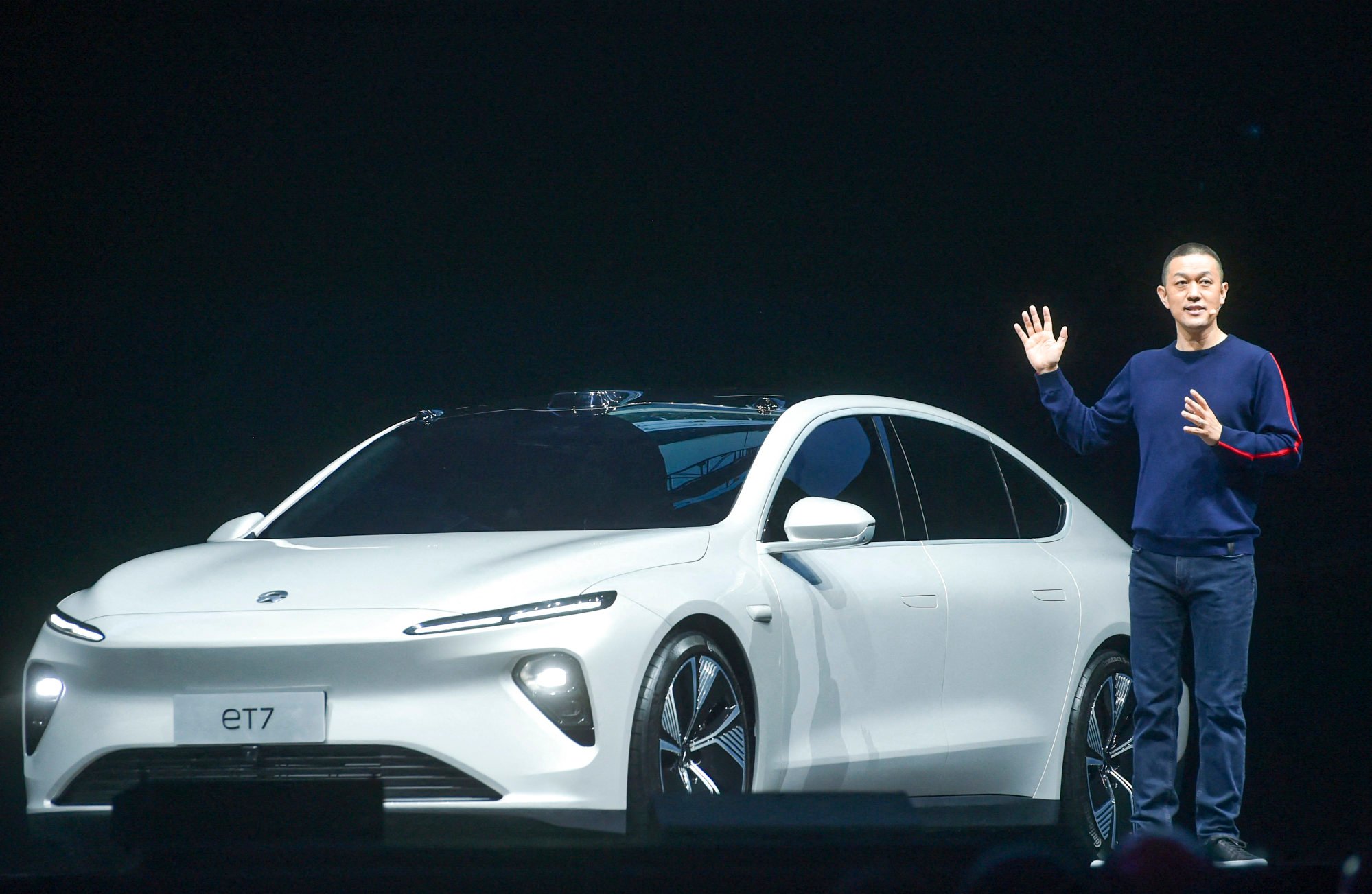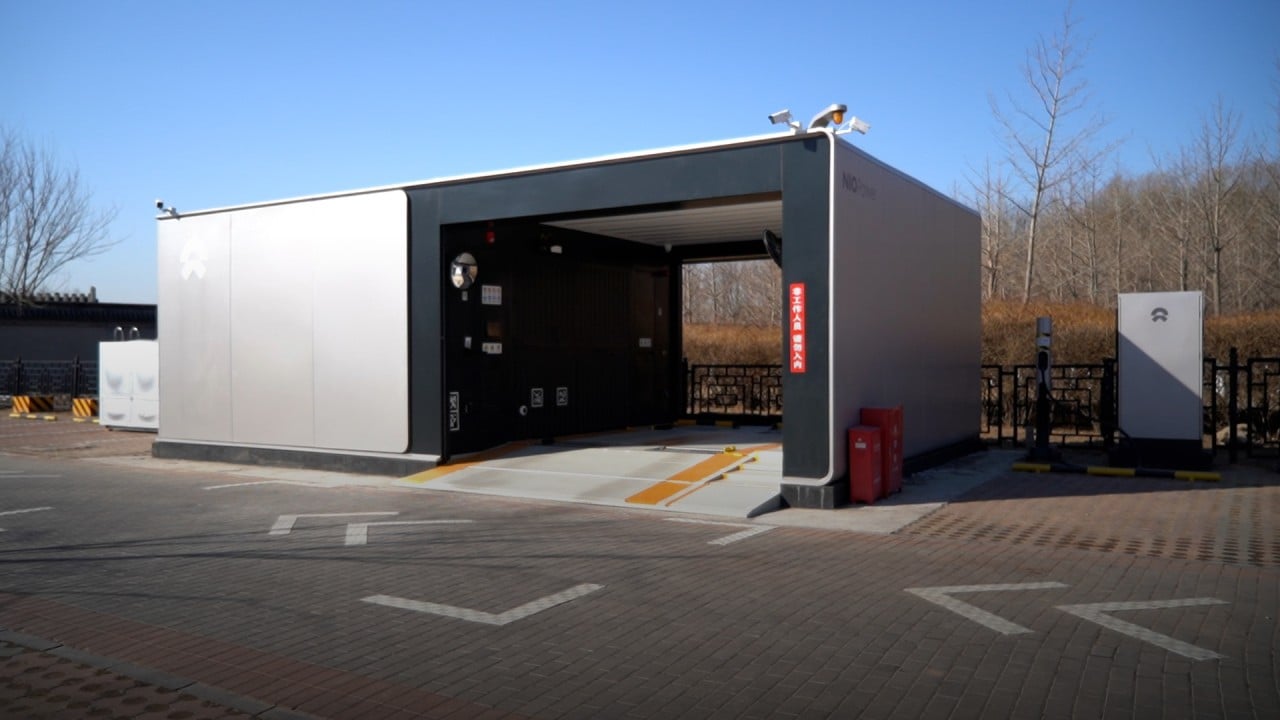“Battery safety, driving range, battery costs, charging efficiency, charging convenience and battery life” are among the major concerns that still deter drivers from owning EVs, William Li, Nio’s co-founder and CEO, said in a media briefing on Thursday. Details of the new batteries to be developed were not revealed.
“An urgent solution to the issue of battery life is much needed now.”
About 20 million pure electric and plug-in hybrid vehicles in mainland China will have to replace their batteries by 2032, which translates into high costs for EV owners, Li said.
An EV battery that can power a car for as much as 500 kilometres costs about 50,000 yuan (US$6,954) to produce, according to Davis Zhang, a senior executive at Suzhou Hazardtex, a supplier of specialised vehicle batteries.

“An extended life cycle for EV batteries means car owners can save thousands of yuan by keeping an EV for a longer term,” he said. “A longer battery life is also a moral boost for potential EV buyers, cementing their decisions to buy electric cars.”
Nio’s battery-as-a-service model allows owners of the carmaker’s vehicles to quickly exchange spent battery packs for fully charged ones. It has built 2,382 battery swapping and charging stations across the mainland.
Nio said it would cut the monthly rental fee for its standard battery pack to 728 yuan down from 980 yuan. Packs used for long-range versions of Nio’s cars will see their monthly rental costs drop 33 per cent to 1,128 yuan.
China is the world’s largest EV market, accounting for about 60 per cent of all battery-powered cars sold worldwide.
Nio reports wider loss, forecasts sharp fall in deliveries as price war escalates
Nio reports wider loss, forecasts sharp fall in deliveries as price war escalates
Moreover, aggressive expansion plans unveiled by the Chinese government, EV makers and supply-chain vendors stand in stark contrast with a U-turn by international marques such as Toyota Motor, Ford Motors and General Motors, which recently reined in their EV plans amid weak demand in the United States and Europe.
Nio delivered 50,045 EVs to mainland customers in the three months ending December 31, beating a forecast of 47,000 to 49,000 units. The deliveries, however, represented a 9.7 per cent drop from the previous quarter.
On December 18, Nio announced it had raised US$2.2 billion from Abu Dhabi-based fund CYVN Holdings. The financing came after CYVN acquired a 7 per cent stake in Nio for US$738.5 million.


